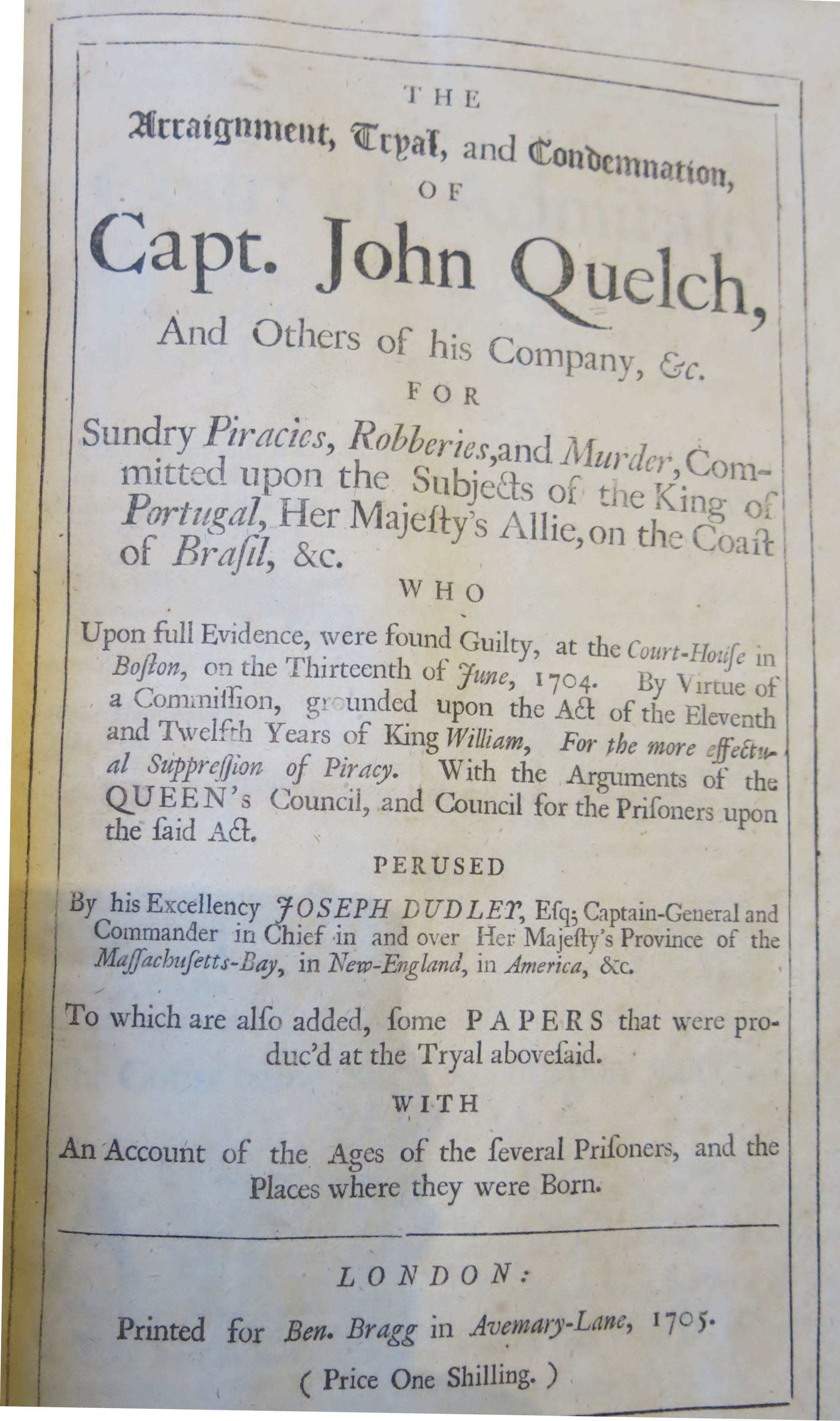“A Negro Boy named Jack, Alias Emannuel who was a slaive”
In 1882 the Newport Historical Magazine published a transcription of a document “so badly mutilated as to be nearly illegible.”
It read:
The document about Joachim was sent to the Colonial Office in London because of a legal dispute over the sale. It went into a government file and was preserved well. Evidently the similar certificate about “Jack, Alias Emannuel” stayed in private hands in America and got tattered.
In that legal dispute, Paul Dudley argued that he had bought Joachim at a fair price because, as an archivist summarized, “there was another negro sold at the same time at the same price.” That must have referred to Jack/Emmanuel, sold to Henry Shaw.
I think the Joachim certificate says he was “Sett up at 19£,” meaning the starting price in the auction was £19. Dudley was the last bidder at £20. If the transcription of the Jack certificate is right, then the starting price to own him was 19 guineas, or £19.19s, but I suspect that both auctions actually started at £19 and ended at £20. There wasn’t what we’d call a bidding war.
Both Joachim and Jack were involved in another legal proceeding: the 1704 trial of Capt. John Quelch and members of his crew for attacking and capturing Portuguese ships. At the time, Britain and Portugal were allies. The letter of marque that authorized Quelch to attack enemy shipping didn’t apply.
According to this summary of the trial record:
It read:
BOSTON, New England, The 6th. October, 1705.Much the same language appears on the certificate of sale of Joachim, alias Cuffee, that I discussed yesterday. The date, place, and vendue master are the same—I think that auctioneer was Nathaniel Shannon (1655–1723), also the port’s naval officer and later a notary.
This Day by me The subscriber was Exposed to publick Sale by the Candle at Mr. Skinners, The Swan Taverne, A Negro Boy named Jack, Alias Emannuel who was a slaive Taken from the Portuguese by the Pirate Sen’r Quares and his crew in the Brigt. Anna and brought into this port among other things, And by order of the Govemt. here the said Slave was Exposed to Sale after some Days Notification at the Coffee House & other Publick Places in writing, and was Sett up at 19 G’s, the highest bidder appearing at the Sd. Sale was Henry Shaw who had him fairly for Twenty pound this money at Eight Shillings p. ounce Troy.
SHANNON, Vendue Master.
The document about Joachim was sent to the Colonial Office in London because of a legal dispute over the sale. It went into a government file and was preserved well. Evidently the similar certificate about “Jack, Alias Emannuel” stayed in private hands in America and got tattered.
In that legal dispute, Paul Dudley argued that he had bought Joachim at a fair price because, as an archivist summarized, “there was another negro sold at the same time at the same price.” That must have referred to Jack/Emmanuel, sold to Henry Shaw.
I think the Joachim certificate says he was “Sett up at 19£,” meaning the starting price in the auction was £19. Dudley was the last bidder at £20. If the transcription of the Jack certificate is right, then the starting price to own him was 19 guineas, or £19.19s, but I suspect that both auctions actually started at £19 and ended at £20. There wasn’t what we’d call a bidding war.
Both Joachim and Jack were involved in another legal proceeding: the 1704 trial of Capt. John Quelch and members of his crew for attacking and capturing Portuguese ships. At the time, Britain and Portugal were allies. The letter of marque that authorized Quelch to attack enemy shipping didn’t apply.
According to this summary of the trial record:
Joachim and Emmanuel were both called upon to testify against Quelch and certain members of his crew. Emmanuel specifically identified Christopher Scudamore as the murderer of his master Bastian, while both men [sic] testified that Quelch and his crew ordered them to claim that they had been Spanish enslaved people rather than Portuguese upon returning to Boston in order to cover up the crimes against Portuguese ships.It’s notable that both boys testified under Christian names. When being resold the following year, Joachim was called “alias Cuffee,” presumably his original birth name. In contrast, Emmanuel was called “Jack, Alias Emannuel,” so had he taken (or been assigned) a new name in the English colony?


No comments:
Post a Comment